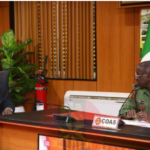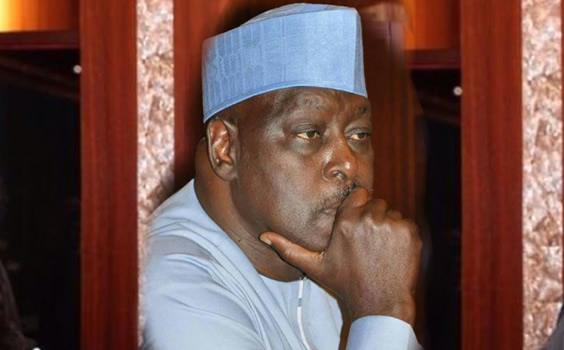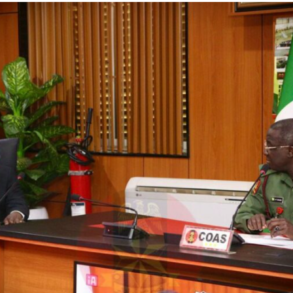The Economic and Financial Crimes Commission (EFCC), had said that it would approach Appeal Court against the decision of Federal High Court which freed Babachir Lawal and others from N544 million fraud lawsuit.
The resident judge, Justice Charles Agbaza in his ruling on November 18, 2022, dismissed the 10-count charge of corruption brought against the former Secretary to the Government of the Federation, and his co-defendants.
The defendants include Lawal, his younger brother, Hamidu David Lawal, Suleiman Abubakar and Apeh John Monday, as well as two companies, Rholavision Engineering (fifth defendant) and Josmon Technologies (sixth defendant).
According to the statement by the anti-graft agency, one of the charges read, “That you, Engineer Babachir David Lawal, while being the Secretary to the Government of the Federation (SGF) and a director of Rholavision Engineering Ltd on or about the 22nd August 2016 at Abuja, in the Abuja Judicial Division of the High Court of the Federal Capital Territory did knowingly hold indirectly private interest in the contract awarded to Josmon Technological Ltd but executed by Rholavision Engineering Ltd for the removal of invasive plant species and simplified irrigation to the tune of N258,132,735.99 (Two Hundred and Fifty-eight Million, One hundred and Thirty-two Thousand, Seven Hundred and Thirty-five Naira, Ninety-nine kobo) only, by the office of the Secretary to the Government of the Federation (OSGF) though the Presidential Initiative for North East (PINE) and thereby committed an offence punishable under Section 12 of the Corrupt Practices and Other Related Offences Act, 2000.”
It was gathered that during the trial, EFCC invited 11 witnesses to prove its case against the defendants.
However, ruling on the no case submission made by the defendants today, Justice Agbaza held that the Commission failed to establish the ingredients of the alleged offence
The EFCC is dissatisfied with the ruling and will review and challenge its validity at the appellate court.








